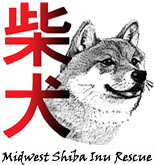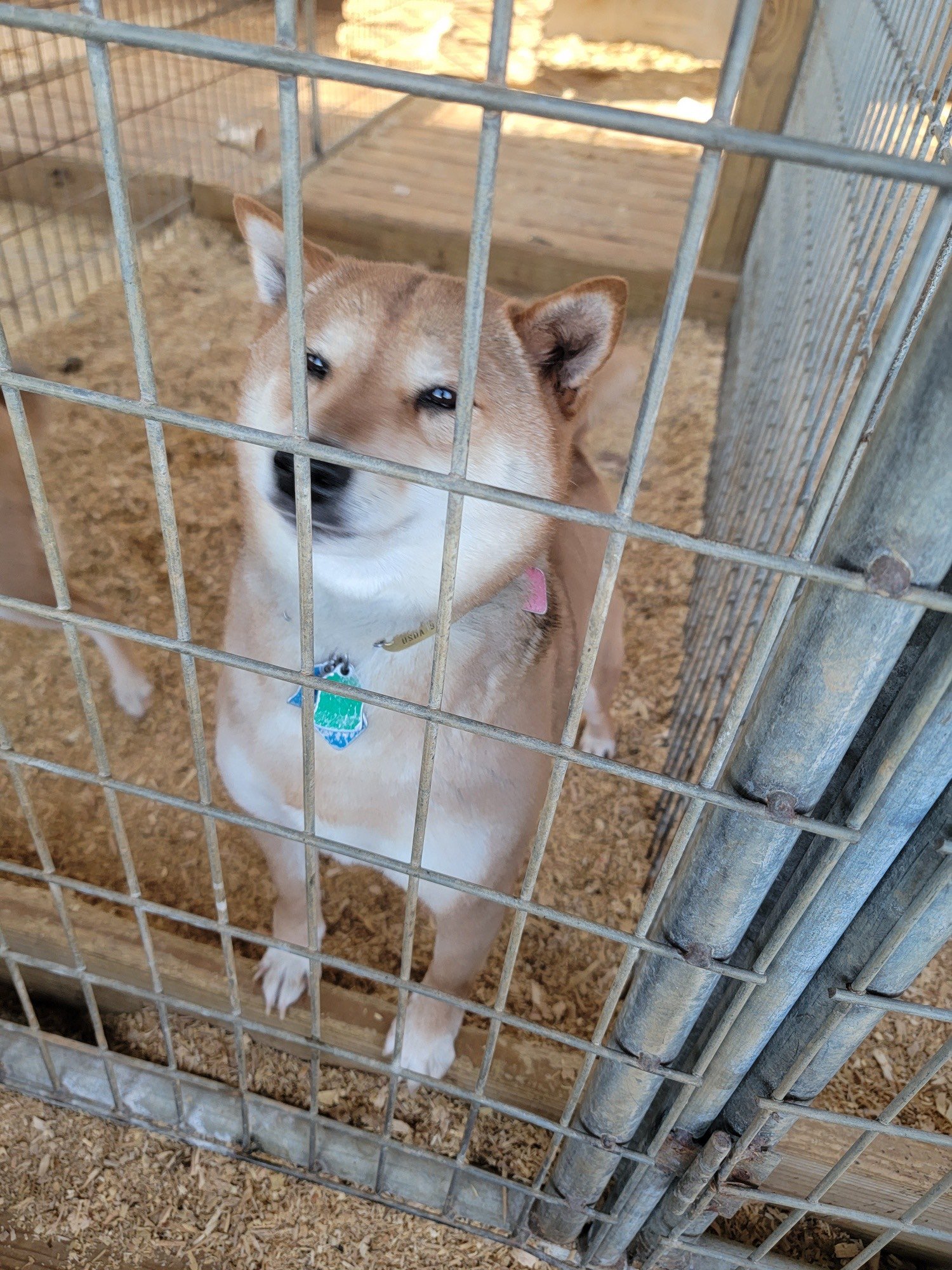All About Mill-Release Shibas
How does this happen?
What is a puppy mill?
Bailing Out Benji describes a puppy mill as “a breeding facility that puts the profit ahead of the welfare of the dogs (and cats rabbits and other small animals). Think of it as a factory farm for puppies.”
Not all breeders are puppy mills. However, if you purchased a dog from a store, on the internet, from an ad in a paper, or from an auction, you likely purchased a dog whose parents’ physical and emotional well-being was completely disregarded in order to maximize profits.
How do dogs from puppy mills get to a dog rescue?
We are often contacted by other organizations or people who have relationships with breeders looking to get rid of dogs they cannot use for breeding or to sell. This is often mom and dad dogs who are no longer able to breed but may include younger dogs with genetic issues or who are just too old to be sold as ‘puppies’ for top dollar. MSIR never buys dogs at auction or pays for dogs from breeders.
What can I expect from a puppy mill dog?
In most cases, these dogs have lived their entire lives in cages with almost no human interaction.
What are puppy mill dogs like?
Friendly with other dogs
Unfamiliar with common home items like stairs
Will need housetraining
Does not understand how to walk on a leash
Nervous and extremely fearful of human contact, not aggressive
‘Shut down’ and unwilling to eat, move, or interact with others
Having health issues due to neglect - often they have infections, rotten teeth, sores and injuries that require medical attention.
Odd eating - you may see them eat odd things including their own stool or grass while seeming to ignore dog food.
What should I do with a puppy mill foster?
Ensure the dog has a space that is their own - because it is all they have known, puppy mill dogs often feel safest in a crate or hiding in an enclosed space. At least for the first few days, allow the dog to have their space as they get used to the sounds and smells of your home.
Gradually give the dog access to your home - your apartment or house is more space than the dog has ever seen. Start by giving the dog access to only one room or area. Over time, you can gradually increase that space. Sidenote - this helps with potty training!
Safety-proof your house - baby gates help keep the dog safe from things like stairs. Take a look around - would you protect a toddler from getting into it? Assume that your foster shiba might also be hurt by it
Keep the dog on a long leash unless secured in an enclosed area like an x-pen or crate - these dogs are very difficult to catch and will not come to you, even if you have the most interesting treats in the world. For their safety (and to avoid chasing a dog around your back yard for 5 hours, keep them on a long lead, especially outside)
Always secure escape points - shibas, who are escape artists already, are even more likely to make a run for it when they come from a mill. Catching them is extremely difficult if they get out. Check your fence, your gates, your doors and add extra levels of security to keep dogs from taking a self-guided tour of your town.
How do I help my foster mill dog?
Have patience - it can take these dogs a long time to ‘decompress’ after their experiences.
Routine - predictability helps reduce stress
Positive reinforcement training - start teaching right away that all good things come from you.

